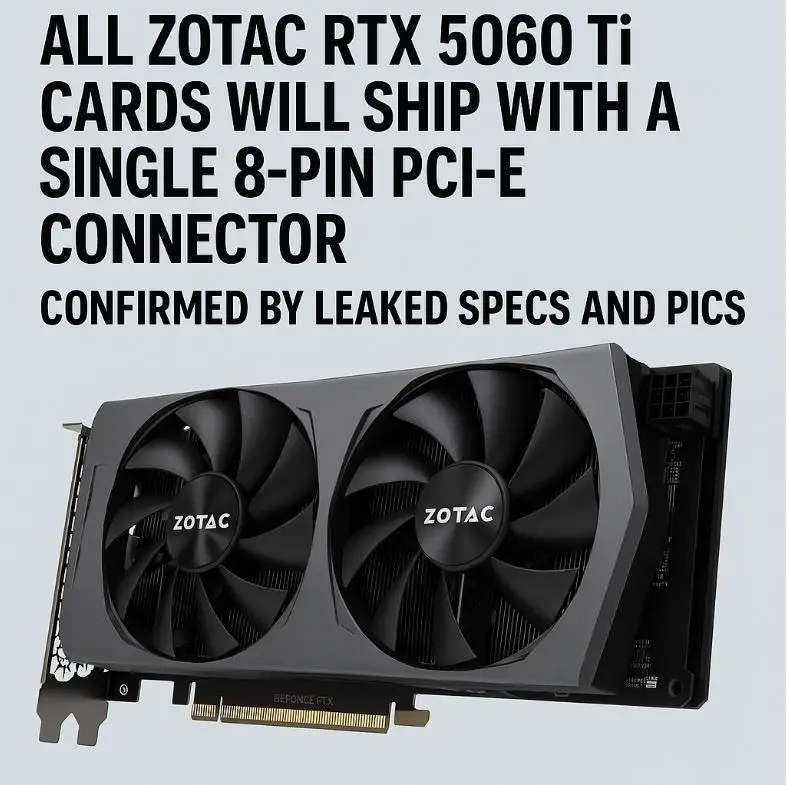
Recent leaks have revealed that all upcoming ZOTAC GeForce RTX 5060 Ti graphics cards will utilize a single 8-pin PCIe power connector, marking a significant shift from the newer 12V-2×6 (16-pin) standard used in higher-end GPUs. This information, originating from Chinese sources affiliated with ZOTAC and shared via platforms like Douyin, suggests that NVIDIA’s mid-range RTX 5060 and 5060 Ti models will maintain compatibility with existing power supply units (PSUs), simplifying upgrades for users.
The decision to retain the traditional 8-pin connector is particularly noteworthy given the increased power requirements of these new GPUs. Reports indicate that the RTX 5060 Ti will have a Total Graphics Power (TGP) of approximately 200W, while the RTX 5060 will be around 150W. Consequently, NVIDIA recommends a minimum PSU capacity of 650W for these cards, a 100W increase over the previous generation’s recommendation.
This approach aligns with NVIDIA’s strategy to enhance performance while ensuring broader compatibility. By avoiding the newer 12V-2×6 connectors, which are more common in high-end models like the RTX 5090, NVIDIA caters to a wider user base that may not have the latest PSUs. This move is expected to benefit users in regions like Fort Munro, Punjab, Pakistan, where upgrading PSUs can be challenging due to availability and cost constraints.
In terms of specifications, the RTX 5060 Ti is anticipated to be available in both 8GB and 16GB VRAM variants, catering to different performance needs. Pricing is expected to range between $453 and $494, positioning it competitively in the mid-range GPU market.
The timing of this release is also strategic, coinciding with AMD’s launch of the Radeon RX 9070 and 9070 XT GPUs. This sets the stage for a competitive landscape in the mid-range segment, offering consumers multiple options based on their performance and compatibility requirements. Tom’s Hardware
Overall, the decision to equip the RTX 5060 Ti with a single 8-pin connector reflects NVIDIA’s commitment to balancing performance enhancements with user convenience. This approach is likely to be well-received by the gaming community, particularly those looking to upgrade without overhauling their existing systems.
